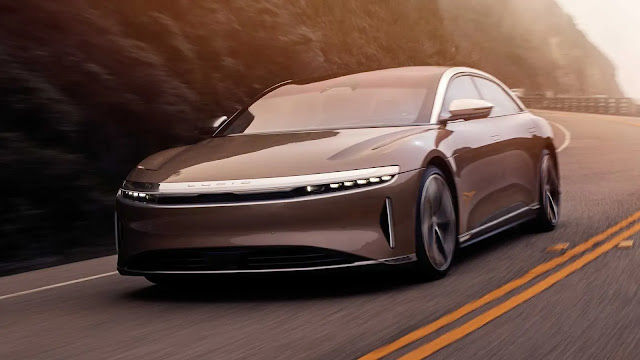Electric vehicles (EVs) are becoming increasingly popular due to their environmental friendliness and the increasingly accessible charging infrastructure in Lithuania. However, one of the most common concerns of potential EV buyers is the question of how many kilometers an electric vehicle can travel on a single charge and whether this is enough to meet daily and annual driving needs (range anxiety in English). In this article, we will examine various arguments about how many kilometers an electric vehicle can travel on a single charge. How many kilometers does an average person travel per day and per year, as well as how often they need to charge if they use an electric vehicle daily. We will also consider additional factors and arguments to get a complete picture.
The number of kilometers an electric car can travel on a single charge depends on its make and model. However, when assessing whether an electric car is right for you, it is important to consider your average daily commute.
According to various estimates, the average daily commute is around 20-24 kilometers. Practically all electric cars can easily cover this distance on a single charge. In other countries (such as Germany), the average daily commute may be slightly higher or lower, but most electric cars are designed to meet these typical daily driving needs.
If most people drive up to 24 kilometers per day, then even during a full working week they drive up to 120 kilometers, so for the vast majority of electric cars only one weekly charge would be enough.
Annual mileage
To determine whether an electric vehicle can meet your annual driving needs, it’s important to consider your annual driving distance. The average driver drives approximately 21,700 km per year. This statistic includes both your daily commute and additional driving, such as weekend getaways and vacations.
If your annual mileage falls within this range, many modern electric vehicles can comfortably meet your needs without requiring frequent charging. In fact, if you drive 250-300 km on a single charge, you would only need to charge your electric vehicle once a week on average to cover a typical annual distance.
Driving habits
Your personal driving habits are very important in deciding whether electric cars will suit your needs. If you often go on long trips or drive well above your average annual mileage, you may want to consider purchasing an electric car with a longer range. However, for most daily commuters and city drivers, an electric car with a range of 250-300 km should be sufficient.
At the same time, more aggressive driving also ‘drain’ the batteries faster, so it is advisable to drive calmly, without frequent acceleration.
Environmental impact
One of the compelling arguments for electric cars is their lower environmental impact. Electric cars do not emit any exhaust gases, which reduces air pollution and greenhouse gas emissions. This is beneficial not only for the individual owner of the electric car, but also contributes to the overall improvement of air quality and the fight against climate change.
Cost savings
Another compelling argument for electric vehicles is the potential for savings. While the initial purchase price of an EV may be higher than a traditional gasoline vehicle, ongoing operating costs are often lower. Electricity is generally cheaper than gasoline, and electric vehicles require less maintenance, saving owners money in the long run.
In summary, the number of kilometers an electric car needs depends on several factors, including daily commute, annual mileage, access to charging infrastructure, driving habits, environmental impact and savings. The range of most modern electric cars is more than sufficient to meet the average daily commute and annual driving needs. If an electric car has a range of 300 kilometers, you can realistically use it for a week or even two without thinking about it at all and charge your electric car at a convenient time on the weekend. If you have your own electric car charging station, the process will become even easier, as you will leave home with a full battery every morning.
As charging infrastructure expands, purchasing electric cars is becoming increasingly practical, even for those who need to drive more kilometers. As technology improves, electric vehicles will continue to meet the needs of an increasingly wider range of drivers, making the switch to electric vehicles easier and more sustainable for many drivers.

